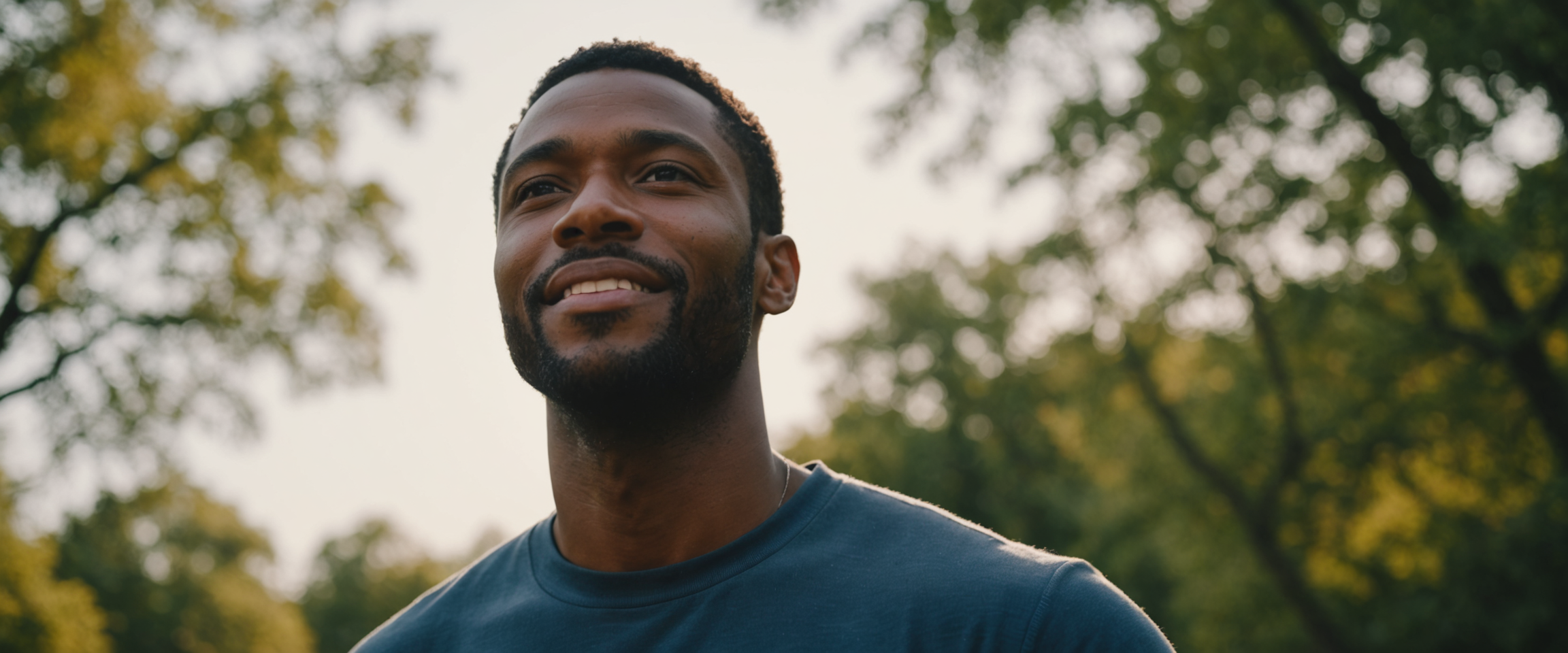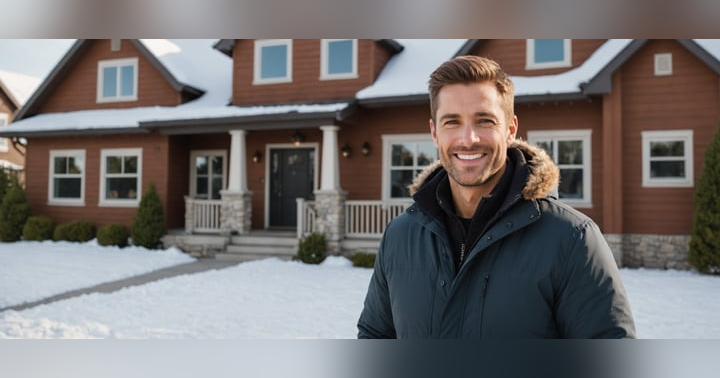The Power of Self-Compassion in Queer Identity

A Path for Queer Healing
For many queer people, the journey toward self-acceptance begins in a world that has long questioned their worth. From early experiences of exclusion to systemic marginalization, LGBTQ+ individuals often internalize shame before ever being offered validation. In the face of these challenges, self-compassion isn’t a luxury—it’s a necessity.
Healing is often nonlinear, shaped by identity, community, and the courage to be seen. Licensed mental health counselor Sam Fogarty of myTherapyNYC echoes this in both his clinical work and personal experience. “We are tough as queer individuals,” he says. “We have faced so much, and we hold so much resilience and strength, but we can let go of that. At a certain point, we've gotten ourselves to a place where it's actually safe to be soft with ourselves, and it's needed.”
By learning to relate to themselves with gentleness instead of judgment, queer individuals can begin to heal the wounds left by a society that has long told them they are too much or not enough. In this way, self-compassion becomes a radical act of reclaiming identity, dignity, and joy.
Feel, Connect, Transform: Emotional Healing in Queer Therapy
Growing up in environments where queerness is invalidated can lead LGBTQ+ individuals to suppress emotional expression in order to feel safe. Sam understands this firsthand. “To feel would be dangerous as a boy, and especially as a queer boy who has a lot of feelings that would essentially out him,” he shares. This survival strategy—detaching from vulnerability—often becomes an ingrained response that carries into adulthood.
Drawing from Accelerated Experiential Dynamic Psychotherapy (AEDP), Sam emphasizes emotional presence and connection in his work with queer clients. Rather than intellectualizing pain or avoiding discomfort, AEDP centers the importance of feeling. In safe, affirming spaces, clients learn to reconnect with buried emotions and break the cycle of shame.
Therapy rooted in self-compassion doesn’t ask queer people to fix themselves. It offers them the tools to feel fully, connect deeply, and transform pain into purpose. It’s through this process that individuals reclaim agency over their narratives and begin to build lives grounded in authenticity, not fear.
Rewriting the Rules: Queer Relationships Without a Blueprint
Unlike cis-heteronormative couples who often have a societal framework to follow, queer individuals frequently build their relationships without a template. From defining commitment to envisioning family structures, LGBTQ+ partnerships are shaped by choice, not tradition, which can be both liberating and disorienting.
“We’re navigating relationships oftentimes without a clear blueprint as to what things can look like,” Sam says. And without models of queer emotional intimacy from childhood or adolescence, many enter relationships with attachment wounds, struggling to express needs or set boundaries.
Therapists working with queer couples often focus first on helping each person find their voice: to identify what they feel, what they want, and how they wish to be loved. Communication becomes a bridge, not just for resolving conflict, but for deepening connection.
At the core of this work is self-compassion: the ability to show up honestly, to own one’s emotional needs without shame, and to believe in the worthiness of queer love. It’s not about conforming to traditional milestones, but about co-creating something intentional, authentic, and sustaining.
From Loneliness to Alignment: Dating as a Self-Compassion Practice
Queer dating is often approached with caution, and understandably so. Warnings like “It’s rough out there” or “Prepare to be disappointed” reflect real experiences of rejection and emotional exhaustion. But dating from a place of defensiveness can become a self-fulfilling prophecy, limiting the potential for real connection.
“A relationship should add to your life, not complete it, or fix something,” Sam asserts. This mindset shift is key: instead of seeking a partner to soothe loneliness or prove worth, queer individuals can center self-compassion by first cultivating a life that feels whole without a partner.
This approach reframes dating not as a desperate search, but as an extension of self-worth. It includes honoring emotional boundaries, recognizing when needs aren’t being met, and trusting that walking away isn’t failure—it’s self-respect.
When queer people date from a foundation of self-compassion, they aren’t looking for someone to save them. They’re looking for someone who sees them clearly, because they’ve already done the work to see themselves.
Reclaiming Softness: A Queer Strength
For those socialized as male, softness is often equated with weakness. Queer boys, in particular, may be taught early on to suppress sensitivity in favor of stoicism and control. Once necessary for survival, these emotional strategies can eventually become barriers to healing.
Self-compassion challenges the internalized belief that harshness leads to growth. It asks queer people to be kind to themselves, not after they’ve succeeded, but precisely when they feel most unworthy. Shame tells us we're never enough; self-compassion answers with: you already are.
Sam explains it clearly: “At a certain point, we've gotten ourselves to a place where it's actually safe to be soft with ourselves, and it's needed.” That softness, far from being a liability, becomes a new kind of strength—one rooted in care, not control.
Self-compassion doesn’t erase resilience. It honors it. It allows queer people to lay down their emotional armor and rest, not because the fight is over, but because they’ve earned peace.
Interrupting Shame: Everyday Practices of Queer Self-Compassion
Shame often hides in plain sight. In the spiral of self-criticism after a tough conversation, in the perfectionism that masks fear, in the compulsion to earn love rather than receive it freely. Interrupting these patterns doesn’t require perfection. It requires presence.
The practice of self-compassion lives in small, daily choices. Pausing to speak kindly to yourself after a misstep. Taking yourself on a solo date. Saying no when something doesn’t align. Letting yourself feel joy without apology.
“You are worthy,” Sam reminds us. “Not because of your job or your body or your friend circle or the party you went to or anything in particular. You are just simply worthy because you are human.”
These everyday acts of compassion help build an inner world that feels safe to return to. A place where love isn’t conditional, and worth isn’t earned through visibility, desirability, or performance. It simply is.
Coming Home to Yourself
At the heart of queer identity lies a deep and often unspoken desire: to be seen, valued, and loved—not for what one achieves, but for who one truly is. Yet for many queer people, the path to that kind of self-acceptance is complicated by years of external expectations, internalized shame, and the pursuit of validation through performance. It becomes easy to chase recognition by following someone else’s roadmap: choosing careers, relationships, and aesthetics that win praise but leave the soul untouched.
True self-compassion invites a different approach. It asks queer individuals to slow down and examine whether their choices are reflections of their own desires or echoes of others’ expectations. It offers the courage to step off the path of performative belonging and onto one of personal alignment, where decisions are rooted in authenticity rather than approval. This shift may feel risky, even lonely at times, but it paves the way toward deeper fulfillment.
And in that realignment, something powerful happens: we begin to attract relationships, communities, and opportunities that mirror their truth, not just their image. By embracing self-compassion as both a practice and a guiding principle, we move closer to lives that are not just accepted but affirmed—lives that are expansive, joyful, and wholly our own.
And remember: every day is all we have, so you've got to make your own happiness.
For more information on this topic, listen to Episode 159. Reclaim Your Queer Identity Through Self-Compassion (with Sam Fogarty).
Tune into your favorite podcast player every Tuesday for new episodes of A Jaded Gay.


















